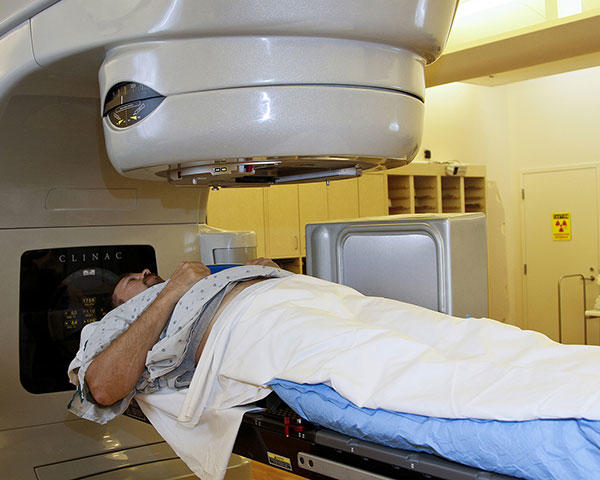Missed Radiation Therapy Sessions Increase Risk of Cancer Recurrence
, by NCI Staff
Patients who miss radiation therapy sessions during cancer treatment have an increased risk of their disease returning, even if they eventually complete their course of radiation treatment, according to a new study.
The magnitude of the effect was higher than the researchers anticipated, which they believe suggests that noncompliance with radiation therapy may be an indicator for other risk factors that could negatively affect outcomes.
The study appeared January 30 in the International Journal of Radiation Oncology • Biology • Physics.
Worsening Outcomes
To conduct the study, Nitin Ohri, M.D., and Madhur Garg, M.D., of the Albert Einstein College of Medicine in New York, and their colleagues analyzed data from more than 1,200 patients at their hospital who had received external-beam radiation therapy as part of treatment with the intent to cure for cancer of the head and neck, breast, lung, cervix, uterus, or rectum between 2007 and 2012.
Patients who missed two or more scheduled radiation therapy appointments were categorized as noncompliant. On average, noncompliant patients (22 percent of the total) missed four radiation therapy appointments. Missing two or more appointments prolonged the course of radiation therapy by an average of 7.2 days. All of the patients in the study eventually completed their planned course of radiation therapy.
During the follow-up period, 9 percent of patients had their cancer recur and 19 percent died. After adjusting for demographic and clinical variables, including cancer type, patients who had been noncompliant with radiation therapy had an increased risk of disease recurrence and inferior rates of survival without disease recurrence.
“The conclusions are relatively intuitive: If you miss treatment, the outcome is not going to be as good,” said Bhadrasain Vikram, M.D., chief of the Clinical Radiation Oncology Branch in NCI’s Radiation Research Program. “But it’s good to have objective scientific data to confirm that.”
Some of the increased risk of recurrence, the authors believe, may be due to tumor repopulation—that is, cancer cells that remain after a halt in treatment dividing at an accelerated rate. But for many cancer types included in the study, previous studies have suggested that tumor repopulation does not have a significant impact on tumor recurrence and survival.
Instead, the authors suggested, noncompliance with radiation therapy may serve as a broader warning sign for additional risk factors that negatively affect outcomes, including unmet mental health needs, lack of social support, and noncompliance with other treatments, such as chemotherapy.
Mitigating Noncompliance
In their analyses, the researchers did not find independent effects of variables such as age, gender, race, and socioeconomic status on recurrence and survival, once noncompliance was taken into account.
Based on the results from this study, the radiation oncology unit at Einstein has instituted a new policy, Dr. Ohri explained.
“At every visit we look back and make sure that the patient has come to treatment every day that week, and [if not] ask the patient in real time: ‘Why were you not here?’” he said.
The radiation oncologists can then provide immediate referrals to supportive care, mental health services, transportation assistance, or other resources.
Doing so, Dr. Ohri continued, allows them to more rapidly address these issues and help patients be compliant for the remainder of their treatment course.
“We’re fighting cancer on two fronts,” said Dr. Ohri. “On one front we’re trying to enhance cancer care and come up with new treatments…that may be more effective than what we currently have available. But equally importantly…we also need to make sure that those advances are available to all of our patients. That’s really what our goal is with this kind of research,” he concluded.
Future research is needed to identify factors that reliably predict noncompliance before any treatment starts, said Dr. Vikram. “It would be very helpful to have something you could put your finger on, before you started treatment, that says ‘this person needs individual [help] in order to be compliant.’”
